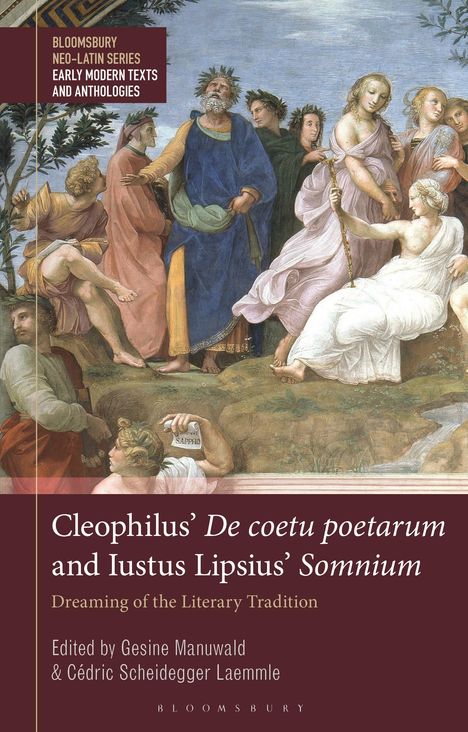Cleophilus' de Coetu Poetarum and Iustus Lipsius' Somnium, Gebunden
Cleophilus' de Coetu Poetarum and Iustus Lipsius' Somnium
- Dreaming of the Literary Tradition
Sie können den Titel schon jetzt bestellen. Versand an Sie erfolgt gleich nach Verfügbarkeit.
- Herausgeber:
- Gesine Manuwald, Cédric Scheidegger Laemmle, Stephen Harrison, William M Barton, Bobby Xinyue
- Verlag:
- Bloomsbury Academic, 05/2026
- Einband:
- Gebunden
- Sprache:
- Englisch
- ISBN-13:
- 9781350468740
- Artikelnummer:
- 12383931
- Umfang:
- 304 Seiten
- Gewicht:
- 454 g
- Maße:
- 216 x 138 mm
- Stärke:
- 25 mm
- Erscheinungstermin:
- 14.5.2026
- Hinweis
-
Achtung: Artikel ist nicht in deutscher Sprache!
Klappentext
Providing the first edited text, translation and commentary of two Renaissance dream-narrative satires, this edition sheds light on the period's literary history and reception of classical texts. Cleophilus' De coetu poetarum (first printed 1483-1485) and Iustus Lipsius' Somnium (first printed 1581) are both framed as dreams in which their authors encounter ancient authors and compare ancient literary works to the deplorable state of literature in their own times. They belong to a tradition of reflections on the characteristics of literature and the value attached to it over time, while also themselves imitating ancient poetic structures.
Lipsius' Somnium , written in a mixture of prose and verse that characterises the so-called Menippean satire, has attracted much scholarly attention as a central text in the tradition of satirical dream narratives that held sway in Humanist circles from the late sixteenth century onwards. By contrast, Cleophilus' elegiac poem has failed to make its mark in scholarship even though it was an important forerunner of this tradition and enjoyed widespread popularity at the time, contributing, among other things, to the impact of Dante's Divine Comedy on Neo-Latin literature. The present edition makes these two important texts more accessible and allows their assessment side by side, thereby contributing to a deeper understanding of Renaissance-Humanist satire and the wider development of literary history as well as the reception of classical literature in the early modern period.


